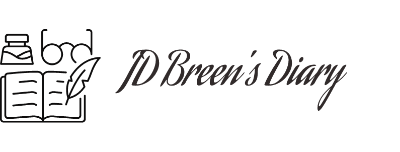St Louis, MO
March 29, 2018
(Uh oh..he’s again at the airport, with time to kill, gazing at departing aircraft while thoughts percolate, keyboard at the ready…)
Many of our most familiar phrases derive from either the plays of Shakespeare or the books of the Bible.
The authorship of each remains a source of uncertainty and debate.
Was the uncultured William of Stratford author of the works generally ascribed to him, or was the courtly and worldly Edward de Vere the font of plays and sonnets so reflective of his proclivities and experience?
Did Moses wield the iron stylus that converted tablets to Torah and parchment to Pentateuch? Whence came David’s Psalms and Solomon’s Song? Who was Isaiah and, for that matter, how many were there?
Such are the squabbles of skeptics, charlatans, and academics.
Undisputed (by most) are the merits and indispensability of the poetry, prose, plays, and parables of which we are the indebted and enriched beneficiaries.
To such depths are these gems embedded in our modern psyche that one must sometimes have the patience of Job (if that’s his real name) to, like Schliemann in Troy, scour the impenetrable layers of even the most barren modern parlance to detect deposits from other veins.
For better or bitter, many who now habitually deploy our glorious patrimony do so without realizing they are doing it.
After all, how would they?
The Bible was, like a dirty diaper from an outstretched arm, unceremoniously dispatched from government schools decades ago.
Shakespeare is more recently being carried away in the receding tide of western civilization, with the likes of Sophocles, Euripides, Homer, and Horace pulled down in the undertow.
Whereas students of both sexes once learned Latin and Greek in high school, today self-identified representatives of all 73 “genders” require remedial English in college.
Facebook and Twitter, the stocks of each this week taking it in (and at the hands of) the shorts, make even remedial English appear as the equivalent of a Virgilian stanza.
The lingua franca of their realm is the single character “word”, the pictographic emoji, or the 140 character villanelle.
Regardless the platform, the textosterone flows fast, unabated, and with little thought.
Like the bitter old man telling juvenile verbal vulgarians to get off his literary lawn, I would often like nothing better than to retreat quietly to my duct-taped easy chair and catch up on re-runs of The Pickwick Papers.
Unfortunately, modernity brooks little reflection, contemplation, or even minor mulling.
It compulsively turns our necks down, locks our eyes on the narrow screen that is almost an extension of our arm, and demands our fingers type immediate replies to every message, meme, and fad that forms, festers, or fizzles.
The corollary is that when we do bother to think, we tend to over-think. Technology and the flood of information it enables almost compels it.
The average holding period for a NYSE stock in 1960 was eight years; today it is eight months.
Like the bubble in a carpenter’s level, an influx of data moves us one way and then the other, provoking incessant vacillation while instilling a constant urge to “do something”.
From time to time, however, we must veer from the herd of technological conformity and compliance to wander more patient pastures and mellow meadows, even if only to graze the familiar fields across which Shakespeare and the Prophets pushed their plows.
Still better are moments to harvest thoughts, however genetically modified, single-cropped, or industrially farmed, from the depleted soil of our own brain.
Of course, deriving entirely original concepts through the sieve of historic or artistic influence is essentially impossible, even if it were unequivocally desirable.
Like photos developing in a dark room tray, “new” ideas often evolve slowly, provoking an eager anticipation that is thwarted when their unknown antecedent unexpectedly arrives as a bright light, exposing our novel notions for the timeworn illusions they are.
Tradition and the wisdom of our ancestors are the foundation of our civilization, and necessary to sustain it.
Nonetheless, originality is a worthy goal and guide, and I shall therefore aspire, as Erasmus once said, “to have no thought…but mine own.”



